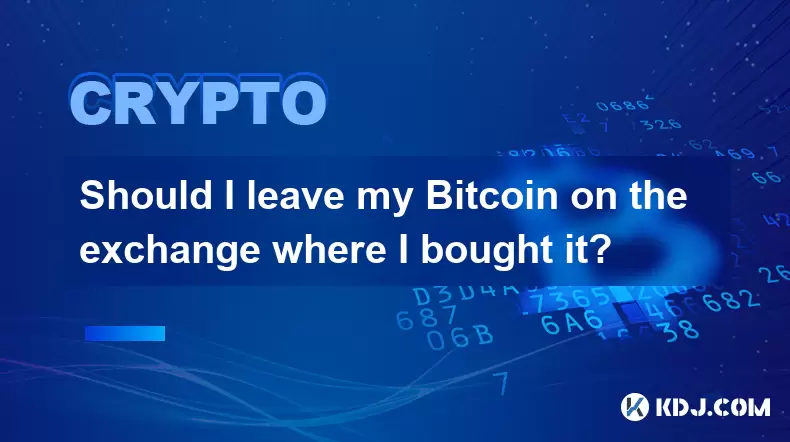-
 Bitcoin
Bitcoin $114200
0.00% -
 Ethereum
Ethereum $3637
0.56% -
 XRP
XRP $2.950
-2.01% -
 Tether USDt
Tether USDt $0.9999
0.02% -
 BNB
BNB $761.0
0.55% -
 Solana
Solana $164.1
-1.38% -
 USDC
USDC $0.9999
0.02% -
 TRON
TRON $0.3332
0.36% -
 Dogecoin
Dogecoin $0.2012
-0.52% -
 Cardano
Cardano $0.7261
-1.41% -
 Hyperliquid
Hyperliquid $37.62
-2.13% -
 Stellar
Stellar $0.3930
-2.65% -
 Sui
Sui $3.441
-0.16% -
 Bitcoin Cash
Bitcoin Cash $563.8
0.70% -
 Chainlink
Chainlink $16.50
0.09% -
 Hedera
Hedera $0.2424
-0.14% -
 Ethena USDe
Ethena USDe $1.001
0.01% -
 Avalanche
Avalanche $22.20
0.00% -
 Litecoin
Litecoin $118.0
-2.48% -
 UNUS SED LEO
UNUS SED LEO $8.991
0.12% -
 Toncoin
Toncoin $3.195
-3.87% -
 Shiba Inu
Shiba Inu $0.00001217
0.12% -
 Uniswap
Uniswap $9.674
-0.21% -
 Polkadot
Polkadot $3.633
1.00% -
 Monero
Monero $295.3
-0.82% -
 Dai
Dai $0.9999
0.00% -
 Bitget Token
Bitget Token $4.321
-0.41% -
 Cronos
Cronos $0.1392
0.73% -
 Pepe
Pepe $0.00001027
-0.89% -
 Aave
Aave $258.5
0.32%
What kind of currency is Bitcoin? Detailed introduction to Bitcoin's online trading platform and total volume
Bitcoin is a decentralized digital currency that operates on a peer-to-peer network without the need for any central authority or intermediaries.
Oct 05, 2024 at 11:36 am

What is Bitcoin?
Bitcoin is a decentralized digital currency, without a central bank or single administrator, that can be sent from user to user on the peer-to-peer bitcoin network without the need for intermediaries. Transactions are verified by network nodes through cryptography and recorded in a public distributed ledger called a blockchain.
History:
- 2008: Bitcoin whitepaper by Satoshi Nakamoto published.
- 2009: Bitcoin software released and first block mined.
- 2010: First documented Bitcoin transaction.
- 2011: First major Bitcoin exchange launched.
- 2013: Cyprus financial crisis leads to increased Bitcoin adoption.
- 2017: Bitcoin's value surges, followed by a major crash.
- 2020- present: Growing adoption and institutional interest.
Properties of Bitcoin:
- Decentralized: Not controlled by any single entity.
- Secure: Transactions verified by cryptography and recorded on the blockchain.
- Anonymous: Addresses are pseudonymous, providing a degree of privacy.
- Transparent: Blockchain records all transactions publicly.
- Immutable: Once recorded on the blockchain, transactions cannot be reversed.
How to Trade Bitcoin:
1. Choose an Online Trading Platform:
- Coinbase: User-friendly platform with a wide user base.
- Binance: Largest cryptocurrency exchange by volume.
- Kraken: Established exchange with advanced features.
- Gemini: Regulated exchange with high security standards.
2. Fund Your Account:
- Deposit funds via bank transfer, debit/credit card, or PayPal.
- Note that different exchanges may have varying deposit options.
3. Place an Order:
- Select the type of order (e.g., market order, limit order).
- Enter the amount of Bitcoin you wish to buy or sell.
- Review the order details before submitting.
Total Volume of Bitcoin:
As of February 14, 2023, the total circulating supply of Bitcoin is approximately 21.3 million BTC. This represents roughly 90% of the total estimated supply of 21 million BTC.
Conclusion:
Bitcoin is a decentralized, secure, and transparent digital currency that has gained significant traction over the past decade. Its properties make it an attractive option for both retail and institutional investors, and its online trading platforms provide convenient access to the market. However, it is important to remember that Bitcoin is subject to price fluctuations, and investors should conduct proper research before engaging in trades.
Disclaimer:info@kdj.com
The information provided is not trading advice. kdj.com does not assume any responsibility for any investments made based on the information provided in this article. Cryptocurrencies are highly volatile and it is highly recommended that you invest with caution after thorough research!
If you believe that the content used on this website infringes your copyright, please contact us immediately (info@kdj.com) and we will delete it promptly.
- EIP-7999: Ethereum's Fee Fixer-Upper – Is This the End of Gas Fee Nightmares?
- 2025-08-06 15:10:22
- Ethereum Withdrawals, Institutional Confidence, and a Potential Price Rally: Decoding the Signals
- 2025-08-06 15:30:12
- Ethereum Reform: EIP-7999 and the Quest for Fee-less Crypto?
- 2025-08-06 15:30:12
- XRP, MAGACOIN FINANCE, and Ethereum: What's Hot in the Crypto World?
- 2025-08-06 15:35:12
- Unilabs, Ethereum, and Dogecoin: Navigating the Crypto Landscape
- 2025-08-06 15:35:12
- ETH, BTC, XRP: Navigating Crypto Volatility and Spotting the Next Big Thing
- 2025-08-06 15:40:11
Related knowledge

Should I leave my Bitcoin on the exchange where I bought it?
Aug 04,2025 at 06:35am
Understanding the Role of Smart Contracts in Decentralized Finance (DeFi)Smart contracts are self-executing agreements with the terms directly written...

What is the difference between holding Bitcoin on an exchange versus in a personal wallet?
Aug 02,2025 at 03:15pm
Understanding Custodial vs Non-Custodial ControlWhen holding Bitcoin on an exchange, users are essentially entrusting their assets to a third party. E...

What is the environmental impact of Bitcoin mining, and is it a serious concern?
Aug 04,2025 at 02:14am
Understanding the Energy Consumption of Bitcoin MiningBitcoin mining relies on a proof-of-work (PoW) consensus mechanism, which requires miners to sol...

What is a 51% attack, and could it destroy Bitcoin?
Aug 03,2025 at 05:08pm
Understanding the Concept of a 51% AttackA 51% attack refers to a scenario in which a single entity or group gains control of more than half of a bloc...

What are the biggest security risks associated with holding Bitcoin?
Aug 03,2025 at 03:16pm
Exposure to Private Key CompromiseOne of the most critical security risks when holding Bitcoin is the compromise of private keys. These cryptographic ...

Can governments shut down or ban Bitcoin?
Aug 02,2025 at 09:44am
Understanding Bitcoin’s Decentralized StructureBitcoin operates on a decentralized peer-to-peer network, meaning it is not controlled by any single en...

Should I leave my Bitcoin on the exchange where I bought it?
Aug 04,2025 at 06:35am
Understanding the Role of Smart Contracts in Decentralized Finance (DeFi)Smart contracts are self-executing agreements with the terms directly written...

What is the difference between holding Bitcoin on an exchange versus in a personal wallet?
Aug 02,2025 at 03:15pm
Understanding Custodial vs Non-Custodial ControlWhen holding Bitcoin on an exchange, users are essentially entrusting their assets to a third party. E...

What is the environmental impact of Bitcoin mining, and is it a serious concern?
Aug 04,2025 at 02:14am
Understanding the Energy Consumption of Bitcoin MiningBitcoin mining relies on a proof-of-work (PoW) consensus mechanism, which requires miners to sol...

What is a 51% attack, and could it destroy Bitcoin?
Aug 03,2025 at 05:08pm
Understanding the Concept of a 51% AttackA 51% attack refers to a scenario in which a single entity or group gains control of more than half of a bloc...

What are the biggest security risks associated with holding Bitcoin?
Aug 03,2025 at 03:16pm
Exposure to Private Key CompromiseOne of the most critical security risks when holding Bitcoin is the compromise of private keys. These cryptographic ...

Can governments shut down or ban Bitcoin?
Aug 02,2025 at 09:44am
Understanding Bitcoin’s Decentralized StructureBitcoin operates on a decentralized peer-to-peer network, meaning it is not controlled by any single en...
See all articles

























































































